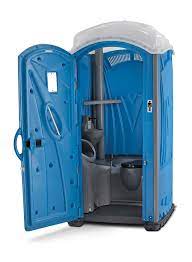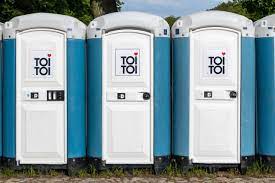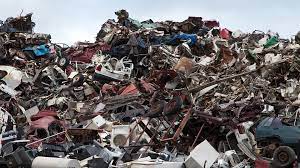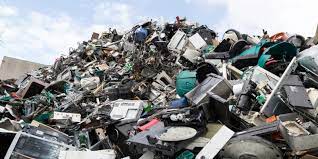
Are you looking for a business opportunity that can be both profitable and rewarding? A waste rubber collection business in Nigeria could be the perfect fit! With the right resources and information, you can create a successful business that can generate substantial income.
In this blog post, we will be discussing how to get started with a waste rubber collection business in Nigeria. We will also cover tips on how to make it a lucrative endeavor. By the end of this post, you will have a solid understanding of the steps required to start and grow a profitable business in this sector. So, let’s get started!
The State of Waste Management in Nigeria
Waste management is a pressing issue in Nigeria, as the country continues to grapple with the challenges of population growth and urbanization. With a population of over 200 million people, Nigeria generates a significant amount of waste on a daily basis. However, the infrastructure and resources for effective waste management are lacking, resulting in inadequate collection, disposal, and recycling practices.
In many Nigerian cities, waste is often indiscriminately dumped in open spaces, rivers, and other water bodies, leading to environmental degradation and health hazards. This situation calls for urgent action and innovative solutions to address the waste management crisis.
The government is making efforts to improve waste management in the country by implementing policies and regulations, as well as encouraging private sector participation. However, there is still a huge gap between the demand for waste management services and the available resources.
This presents a unique opportunity for entrepreneurs to start businesses that focus on waste management, such as waste rubber collection. By collecting and recycling waste rubber, entrepreneurs can not only contribute to environmental sustainability but also tap into a lucrative market. With the right knowledge, permits, and strategies, starting a waste rubber collection business in Nigeria can be a profitable venture.
The Demand for Rubber Waste Collection Services in Nigeria
As Nigeria's population and economy continue to grow, so does the amount of waste generated daily. In the past, waste disposal was not considered a significant issue, and most waste was dumped indiscriminately, leading to health hazards and environmental pollution. However, the situation has improved significantly in recent years as government agencies and private organizations focus on waste management and recycling.
The demand for rubber waste collection services in Nigeria has increased significantly in recent years as a result of the country's growing population, increasing industrialization, and emphasis on environmental sustainability. Nigeria produces significant quantities of rubber waste daily, which include old car and truck tires, rubber shoes, and other rubber materials.
Recycling companies in Nigeria require a steady supply of rubber waste to manufacture various recycled products such as rubber tiles, mats, roofing materials, and playground surfaces. The demand for these recycled products continues to grow, leading to an increase in the demand for rubber waste collection services.
As a result, entrepreneurs in Nigeria can tap into this lucrative business opportunity by starting a waste rubber collection business. With the right knowledge and strategy, you can provide a critical service to your community while generating substantial profits.
Requirements and Permits for Starting a Waste Rubber Collection Business
Before starting a waste rubber collection business in Nigeria, it is important to ensure that you have the necessary permits and meet all legal requirements. Here are some of the key requirements and permits to consider:
1. Business registration: Register your business with the Corporate Affairs Commission (CAC) to obtain a Certificate of Incorporation.
2. Environmental Impact Assessment (EIA): Conduct an EIA and obtain an Environmental Impact Assessment (EIA) Certificate from the Federal Ministry of Environment.
3. Waste management permit: Obtain a permit from the relevant state government agency responsible for waste management.
4. Transportation permit: Register your trucks or other transportation vehicles with the Federal Road Safety Corps (FRSC) and obtain relevant permits to transport waste.
5. Health and safety compliance: Ensure compliance with health and safety regulations and provide adequate safety equipment for your workers.
6. Insurance: Obtain liability insurance to cover your business in case of accidents or other incidents.
It is important to note that the requirements and permits may vary depending on your location and the specific regulations in your area. It is advisable to consult with local authorities and regulatory bodies to ensure that you meet all the necessary requirements.
Identifying Sources of Rubber Waste
One of the crucial steps in starting a waste rubber collection business is identifying the sources of rubber waste. Nigeria, being a country with a thriving rubber industry, offers various potential sources of rubber waste that can be collected and processed.
One key source of rubber waste is from rubber processing factories. These factories often generate a significant amount of waste rubber during their production processes. Building relationships with these factories can provide a steady and reliable source of rubber waste for your collection business.
Another potential source is rubber plantations and farms. Rubber trees eventually lose their productivity and need to be replaced, resulting in a significant amount of rubber waste. By partnering with rubber plantation owners, you can collect the discarded rubber and prevent it from becoming an environmental problem.
Additionally, the automotive industry is another source of rubber waste. Scrap tires from vehicles are a common type of rubber waste and can be collected from automobile repair shops, tire shops, and even from individuals who want to dispose of their old tires.
By conducting thorough research and establishing connections with these sources, you can ensure a consistent and reliable supply of rubber waste for your collection business. Remember, it is important to have a diverse range of sources to avoid dependency on a single supplier and ensure a steady flow of rubber waste.
Strategies for Efficient Rubber Waste Collection and Processing
Efficiency is crucial in the waste rubber collection business to ensure that your operation runs smoothly and cost-effectively. Here are some strategies that can help:
1. Plan your routes – Plan the collection routes for your team to minimize time spent on the road and optimize collection volumes in each location.
2. Use appropriate vehicles – Choose vehicles that are appropriate for the collection task, taking into account the type and volume of waste. A truck with a flatbed can carry a lot more waste than a pickup truck, for example.
3. Develop partnerships – Form partnerships with rubber factories, mechanics, and other businesses that generate significant amounts of waste rubber. This way, you can have regular and reliable sources of waste rubber.
4. Invest in sorting and processing equipment – Invest in equipment such as shredders, granulators, and balers to sort and process the rubber waste more efficiently.
5. Implement safety protocols – Ensure that all team members understand and follow safety protocols when collecting and processing waste rubber.
6. Train your staff – Provide regular training to your staff to ensure that they are up-to-date with the latest collection and processing techniques.
By implementing these strategies, you can maximize the efficiency of your waste rubber collection and processing business, leading to greater profits and a positive impact on the environment.
Marketing and Selling Recycled Rubber Products
Once you have collected and processed the rubber waste, the next step is to market and sell your recycled rubber products. There are various products you can make from recycled rubber such as rubber tiles, rubberized asphalt, playground surfacing, and more.
To market and sell your products, start by creating a strong brand image. This includes creating a catchy brand name, designing a unique logo, and developing a tagline that describes your products.
Next, develop a marketing strategy that targets your potential customers. Consider partnering with companies or organizations that use rubber products such as construction companies, sports facilities, and playground manufacturers. You can also sell directly to consumers through online platforms and physical stores.
When it comes to pricing your products, research your competitors and adjust your prices accordingly. You can also offer discounts to attract customers and create loyalty programs to encourage repeat business.
Lastly, don't forget the importance of customer service. Make sure your customers are satisfied with the quality of your products and provide timely responses to their inquiries or complaints. Happy customers can lead to positive reviews and word-of-mouth marketing.
Financial Planning for Your Waste Rubber Collection Business
Once you have established your waste rubber collection business, it is important to develop a financial plan to ensure the profitability and sustainability of your operations. Here are some key financial considerations to keep in mind:
1. Budgeting: Develop a detailed budget that outlines your expected expenses and revenues, taking into account all costs associated with collecting, processing, and selling recycled rubber products.
2. Financing: Identify potential sources of financing, such as loans, grants, or partnerships, that can help you cover start-up costs and ongoing expenses.
3. Pricing: Determine competitive pricing for your recycled rubber products that allows you to cover your costs and generate profits, while also remaining attractive to customers.
4. Revenue streams: Consider diversifying your revenue streams by exploring additional products or services you can offer, such as consulting or waste management services.
5. Risk management: Develop a risk management strategy that identifies potential risks to your business, such as changes in market demand or increased competition, and outlines plans for mitigating those risks.
By taking these financial factors into account, you can develop a sustainable and profitable waste rubber collection business that contributes to both environmental sustainability and economic growth in Nigeria.






















